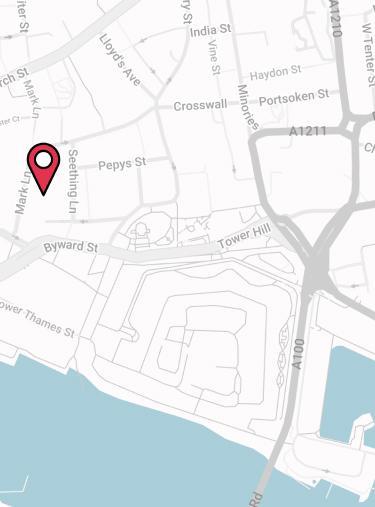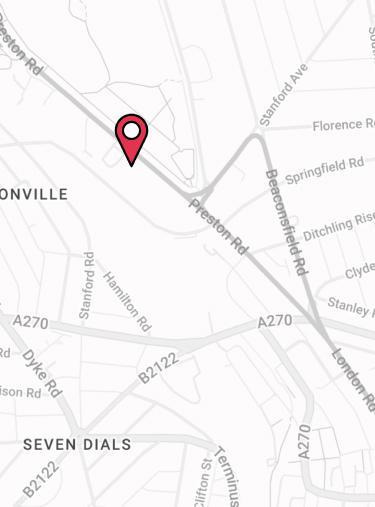
As you know, pilots must be in excellent health to carry out their duties. With these strict health criteria, there are many illnesses and/or injuries that could easily prevent you from your pilot duties.
Given this, many pilots protect their income with an insurance policy. So even if you fall ill or suffer an accident, you’ll still receive an income. If you’re considering Pilot Income Protection, this comprehensive guide contains all you need to know about these policies.
What Is Pilots Income Protection?
Income Protection Insurance for pilots pays out a tax-free monthly benefit if you’re unable to work because of sickness or accident.
- Protects up to 70% of your gross salary if you can’t work for any medical reason
- Enables you to cover essential outgoings (rent / mortgage payments, household bills, and groceries)
- Can provide long-term cover, paying out until your expected retirement date
- Optional add-on Unemployment Insurance to protect you against redundancy.
Why Is Pilot Income Protection Important?
Since the risk of being unable to work is much higher than the standard office worker, Income Protection for pilots is key. If you require long-term sick leave, it’s likely your finances will take a hit.
Pilot Income Protection Insurance pays out your benefit sum while you’re off work. And if you opt for long-term protection (we recommend this to all our clients), you can receive the payout right until your expected retirement age. So even if you can never work again due to accident or sickness, you’ll get a regular income.
SPECIALIST TIP 🤓
According to consumer group Which?, Income Protection is the one policy every working adult should consider.
How Does Income Protection Insurance For Pilots Work?
Income Protection for pilots works the same as individual Income Protection policies. The only difference is who the cover is for—pilots.
Once you have a policy, should you need to make a claim, after your deferred period has passed, you will receive a tax-free monthly income. This can be used to cover your monthly outgoings and will continue to be paid out until you are fit to return to work, retire or the policy ceases.
Policy Factors To Consider When Taking Out Pilots Income Protection
The above sounds quite straightforward, however there are a number of policy factors that will determine what your actual policy looks like, when it will pay out and how much it will cost. These include the following.
The Level Of Cover
Your policy can cover up to 70% of your gross earnings (this may differ from provider to provider). To choose a suitable level of cover, consider your core monthly outgoings and align your policy with this. The higher the level of cover, the more your premiums cost.
The Deferred Period
The deferred period (or waiting period) is the length of time you will wait before your monthly benefit starts. Longer waiting periods reduce monthly premium costs compared to shorter ones.
You want this period to align with any sick pay you’ll receive or savings you can rely on. For example, if you could survive for four weeks on other financial means, a 4 week deferred period is the best option.
Policy Cease Age
This refers to how old you will be at the end of the policy. Typically, pilots align this with their expected retirement age, which is most often 65 for commercial pilots. The older the cease age, the more your policy will cost. But you’ll be protected for longer.
But not every insurer offers coverage to the age of 65. So, if this is something you want from a policy, it’s important to compare providers to see which one suits you best.
The Benefit Period
The benefit period is the length of time your claim will be paid out for if you’re unable to work. You can choose a short-term policy that only pays out for a maximum of either 1, 2 or 5 years per condition per claim. Or long-term Income Protection for Pilots that continues paying out until you return to work or reach the policy cease age.
Liverpool Victoria’s average claims length was 5 years and 3 months long in 2022, so it’s best to opt for full-term coverage if your budget allows.
Premium Type
When setting up Pilot Income Protection Insurance, you’ll have three types of premiums to choose from. These are:
- Reviewable premiums
Reviewable premiums are exactly what the name suggests—reviewable. The insurer can increase your premiums as they see fit. The insurer might have seen a rise in claims or there are other economic factors at play. This type usually starts out cheaper, but tends to be more expensive over the lifetime of the policy - Age-banded premiums
This type of premium also works out to be cheaper initially, but then steadily rises each year. Age-banded premiums can only rise by a preset amount set in your policy documents. Such increases are linked to your age, and the increased risk of claiming as you get older - Guaranteed premiums
Guaranteed premiums may appear expensive initially, but they won’t change over time. What you pay on day one is what you’ll pay 10 years into the policy. This applies unless you make any changes to your plan.

Policies with guaranteed premiums are the best option. But many providers don’t offer this to pilots. The insurers that do offer cover to pilots tend to have age-banded premiums.
Alex Weir
Independent Health & Protection Specialist
Indexation
Index-linking your Income Protection Insurance ensures your benefit isn’t eroded by inflation. Without indexation, the value of your benefit sum will drop due to the rising costs of goods and services.
Index-linking your policy means the value of your benefit always aligns with inflation. This ensures that the payments you receive in 20 years’ time are worth the same as they are today.
Definition Of Incapacity
The definition of incapacity is how the insurer determines if you’re fit for work and your eligibility to make a claim. There are three definitions to consider when buying Pilot Income Protection, including:
- Own occupation
You can claim as long as your injury or sickness prevents you from working in your specific job role as a pilot - Suited occupation
To claim on this definition, you have to be unable to do your current job or any other job where you have experience or education to perform in the role - Any occupation
This is the hardest definition of incapacity to claim on, as it only pays out if you’re unfit to do any job / perform a set number of tasks required in most roles.
We always recommend own occupation cover to our clients, regardless of if they’re a pilot or not. This is because it makes it easier for your claim to be successful. As long as you can’t do your specific duties, you’ll receive your monthly benefit.
The other definitions, such as suited occupation cover, could mean that if you’re deemed unfit to work as a pilot, you might not be able to claim. This is because the definition deems you capable of performing in another role using similar experience and knowledge. For example, teaching in a flight simulator.

It’s important to note that very few providers offer Pilots Income Protection with own occupation cover.
Those who do offer this require you to set up a policy through a specialist, such as our specialists at Drewberry™. If you’re unsure on what definition is best for you, get in touch on 02084327333 or email help@drewberry.co.uk. We’ll be happy to help.
Darren Jaynes
Independent Protection Specialist
Income Protection Client Stories
What Does Pilot Income Protection Insurance Cover?
Your policy will pay out should you be unable to work due to:
- Accidents or bodily injuries
- Periods of sickness / illness.
This could be due to a minor niggle such as back pain, or something more serious, like cardiac issues. But not all health issues results in disqualification or forfeiting your licence.
Back pain, in most cases, is not serious enough to warrant suspension of your pilots licence. As long as an issue medically prevents you from doing your job, you can make a claim regardless of your licence status.
As mentioned above, to ensure you’re covered if you can’t work, it’s important for your policy to cover you in your own occupation. This incapacity definition means the policy pays out if you’re unable to do your specific job as a pilot.
What Doesn’t Pilots Income Protection Cover?
All insurance policies tend to have standard exclusions. These exclusions apply to every policyholder. Most Pilot Income Protection policies don’t cover accident or sickness sustained:
- In pursuit of criminal activity
- From illegal / illicit drug use, substance abuse or alcohol misuse
- During foreign travel to areas of active internal conflict, high terrorism risk, political instability or countries the Foreign and Commonwealth Office (FCO) has advised against visiting.
Aside from these, there are very few other exclusions. Insurers base your coverage on your medical history.
Does It Cover Pre-Existing Conditions?
When you apply for Pilot Income Protection Insurance, the insurer requests information about your health. And in particular, any medical conditions you’ve had in the last five years.
Depending on what conditions you disclose, the insurer may:
- Cover your illness on standard terms (there’s no cost difference compared to an individual without the condition)
- Cover the condition for an additional premium
- Exclude the condition, but offer a date for when the exclusion may be reviewed
- Exclude your illness entirely (perhaps with a premium discount to compensate).
Given the strict requirements to be a commercial pilot, most of our pilot clients have very few (if not any) illnesses.

We have direct access to the underwriters at the top UK insurers. Our team of specialists can negotiate the best policy terms for your circumstances, even if you have a pre-existing condition.
If you need help to find the right Pilot Income Protection, call 02084327333 or email help@drewberry.co.uk.
Samantha Haffenden-Angear
Independent Protection Specialist
Pilot Income Protection Vs. Loss Of Licence Insurance
Commercial pilots buy either Income Protection or Loss of Licence Insurance. The difference to consider is the terms and conditions. Loss of Licence covers you in the event your licence is revoked. While Income Protection covers you for any medical reason that prevents you from working. For this reason, Income Protection is more comprehensive.
We’ve detailed the differences between the two to help you understand how they differ.
|
Loss of Licence Cover |
Income Protection |
|---|---|
|
Payout Format |
|
|
Pays out a lump sum or monthly payments if your licence is revoked. Payouts aren’t long term and tend to be capped at a maximum amount |
Pays out a regular tax-free monthly income. Long-term cover pays out every month until your policy cease age (typically your airline’s retirement age) |
|
Making A Claim |
|
|
Pays out if your licence is suspended or revoked due to illness or injury |
Pays out for any accident or sickness that medically stops you working |
|
Requirements For A Claim |
|
|
Your licence must be suspended / revoked to claim. A more minor illness / injury might not lead to this, but could still stop you working |
No requirement for your licence to be suspended / revoked to claim. The only criteria is that you are medically unable to work |
|
Maximum Entry Age |
|
|
Loss of Licence policies tend to only accept applicants for illness cover if you’re aged under 55. Such a policy provides limited cover |
There are some Income Protection insurers that offer cover to those aged 55-70, enabling you to get protection up until you retire |
Loss of Licence Insurance is a ‘onetime’ product. If your licence is revoked or suspended, it only pays out once. While Pilot Income Protection has less strict claims criteria. And you can typically claim more than once if necessary.
SPECIALIST TIP 🤓
We work with pilots from various different airlines. Many of these come to the conclusion that Income Protection policies are a more suitable option than Loss of Licence Insurance.
Do Pilots Need Income Protection Insurance?
As a pilot, you know firsthand just how medically fit and healthy you need to be to qualify. And to ensure you remain medically fit to fly, this means regular medical checks. You probably know how easy it is for an injury or illness to stop you from flying.
With that in mind, what would happen to your finances if you experienced a loss of income because of an accident or illness?
Whether you need Pilots Income Protection is a personal decision. When considering a policy, it’s important to think about:
- Your essential monthly outgoings
- Any savings you have
- If family members could support you financially.
The Risk Of Accident And Sickness
The risk of developing an illness or suffering an injury is much higher than you might think. And the risk becomes all the more apparent for pilots. A new condition may result in you needing time off work.
These recent statistics show how prevalent long-term sickness or disability is:
- 2.8 million people were economically inactive due to long-term sickness / disability in November 2023
- While most people on long-term sick leave are over 50, there’s been an increase in those aged 35 and above taking time off (Statista).
Could I Rely On Savings?
You might be the exception, but many people don’t have enough saved in an emergency fund to cover living costs if they were off sick.
In our recent Employee Benefits survey, 1 in 5 people told us they wouldn’t have enough to live on for longer than a week. What’s more, 34% of adults have no savings or less than £1,000 tucked away. Considering the average UK household monthly expenditure in 2022 was £528.80, a small savings pot isn’t going to be enough.

If you’re unable to work due to an accident or sickness, the very last thing you want to worry about is your finances. This is what makes Pilot Income Protection essential, providing a regular income to cover bills and expenses.
Rauri Taylor
Independent Protection Specialist
What About State Benefits?
Should you take time off due to an accident or bout of illness, there are state benefits available. One of the main government benefits is Employment and Support Allowance, which provides up to £92.05 a week if you’re over 25. For many people, this sum isn’t enough to cover everyday costs of living.
There are other benefits, but eligibility depends on the severity of your condition. And even if you are entitled to them, such benefits rarely replace all your lost income.
Isn’t My Airline’s Sick Pay Enough?
Many airline employers offer a set number of weeks or months at full pay if you take time off sick. But this is dependent on your specific employer. Make sure to check your contract to see how much sick pay you may get and for how long; you could be in for a shock if it is less than you think.
It’s likely that after your company sick pay ends, you’ll be placed on Statutory Sick Pay. Employers are required by law to provide this for up to 28 weeks. Again, it only pays out a small sum of £118.75 a week.
If a new health condition results in loss of licence and you can never fly again, it’s possible for your airline to terminate your contract. In what’s already a difficult time, losing your potential sick pay entitlement is another stress factor.
How Much Does Pilots Income Protection Cost In 2026?
The cost of Pilot Income Protection depends on a variety of factors, including those we’ve already mentioned. Below are some cost examples based on different factors to give you a better idea of the price.
1. The Provider
No Income Protection Insurance provider is the same, and this starts with the premiums. Each insurer has its own appetite for risk and may offer different services and benefits. As a result, it’s best to shop around and compare providers when buying Pilots Income Protection.
Here are some monthly cost examples from two providers. These quotes are based on:
- A monthly benefit of £1,500
- You’re a healthy non-smoker aged 35
- There’s an 8 week deferred period
- Own occupation cover
- Guaranteed premiums
- A long-term policy that ends at 55.
| Different Providers | |
|---|---|
 |
 |
| £178.49 | £168.68 |
2. Your Age
How old you are at the start of your policy plays a part in pricing. As there’s a higher risk of illness and injury as you age, premiums reflect this.
Below are some monthly premiums for pilots of differing ages, using the same policy options as above (except age).
| Age 25 | Age 35 | Age 45 |
|---|---|---|
| £114.88 | £168.68 | £234.08 |
3. Your Medical History
As previously noted, insurers may increase premiums if you have a pre-existing condition. Or they may exclude it outright.
This will depend on the insurer and your condition, so pricing can only be determined at the point of application. Pre-existing medical conditions are excluded, as they often require long-term treatment and medication. This increases the medical costs for the insurer to cover.
4. Smoker Status
Another key factor for the cost of Pilot Income Protection Insurance is whether you smoke or not. This is due to the high risk smokers face when it comes to their health. Most insurers price premiums higher if you smoke, although not all do.
Here are some example quotes showing the cost difference per month for smokers and non-smokers. This is based on the policy options previously used for a 35-year-old pilot.
| Smoker Vs Non-Smoker | |
|---|---|
| 🚬 | 🚭 |
| £238.98 a month | £168.68 a month |
5. The Deferred Period
Most insurers offer deferred periods of 4, 8, 13, 26, or 52 weeks. Some even have one day options. The longer the deferred period, the cheaper your premiums, as the insurer doesn’t have to payout as soon as you claim.
Here are some Pilot Income Protection cost examples of different deferred periods. These are based on the policy options above.
| Length Of Deferred Period | Monthly Cost |
|---|---|
| 4 weeks | £183.54 |
| 8 weeks | £168.68 |
| 13 weeks | £98.69 |
If you want to find out more about how much Pilots Income Protection may cost you, you can compare all the UK’s leading insurers using our quote tool.
How To Make A Claim On A Pilots Income Protection Policy
If you think you’ll be out of work longer than your deferred period, your first port of call should be to let your insurer know.
You won’t be able to receive your benefit until the end of the deferred period. But starting the claims process as soon as you take time off helps inform the insurer when they might need to pay a claim.
To submit a claim, you must complete a claims form, which can usually be filled out online or downloaded. Downloading the claims form requires you to return it by post. You’ll also have to submit medical evidence from your GP or other medical professional.
As soon as you’ve waited out the deferred period, you’ll get your monthly tax-free payment from the policy until:
- You’re well enough to return to work
- You reach the end of your claims period (1, 2 or 5 years for short-term policies)
- Or the policy ends (typically at retirement, for long-term cover).
Neil’s Cancer Claim With British Friendly
Neil is a client of Drewberry who bought Accident and Sickness Insurance with British Friendly. He was a member for 4 years before he needed to claim.
He became unwell with pains in his stomach. After consulting his GP and having tests, Neil was diagnosed with stage 2 Bowel Cancer and needed to make a claim.
🤕 Read More About Neil’s Claim
Pilot Income Protection FAQs
Is Income Protection the same as Loss of Licence Insurance?
No, Income Protection and Loss of Licence Insurance are different products.
Loss of Licence Insurance pays out if your licence is suspended or revoked on medical grounds. It typically pays out one lump sum, but may pay out an income for a brief period until you reach the benefit maximum. This means your illness has to be serious enough to result in the revocation or suspension of your pilots licence.
Pilots Income Protection, on the other hand, pays a monthly income should you suffer any illness or injury that prevents you from working as a pilot. Should a claim arise, the policy pays a benefit until you’re fit enough to return to work or you reach retirement age.
Do I need a medical for Pilot Income Protection?
Whether you need a medical assessment depends on a variety of personal and policy factors.
If you’re of older age and seeking a higher benefit, or have been unwell in the past, you may immediately meet medical screening criteria. As a pilot, it’s highly likely you’re well versed in medical checks.
There are a handful of medical screening methods, including:
- Telephone interview with a nurse to discuss health metrics and issues
- Visit from a nurse to your home or workplace for more physical health checks
- A full medical with a doctor to ensure you’re in tip-top health.
We generally find that most pilots pass their medicals easily, since they have to be in excellent health for the job. What’s more, these medicals are at the insurer’s expense, so you don’t need to worry about extra costs. You can also pick a time and date that suits you best.
I fly helicopters for a living; can I still get Income Protection?
Although the risk may be considered higher, helicopter pilots are still able to take out an Income Protection policy. This is as long as they work more than 16 hours per week and pay UK taxes.
Compare Best UK Income Protection For Pilots In 2026
There are only four insurers in the UK offering Income Protection to pilots on an own occupation basis. This is the best definition of incapacity, and the one we believe is important pilots choose.
In addition to the insurance provider reviews below, we’ve also got a comprehensive guide to the best UK Income Protection policies.
Additional Benefits and Support
Most Income Protection insurers now offer a great range of extra benefits. These aim to support your overall health and wellbeing, and can be used outside of a claim.
You might find these valuable extras included on your policy:
- 24/7 virtual GP and prescription service
- Nurse led medical helplines and mental health support
- A fixed number of physiotherapy sessions per year (either online or in person)
- Second medical opinion service, providing access to world-leading medical specialists to offer a second opinion on a diagnosis or course of treatment
- Discounts on gym memberships / fitness trackers and high street goods
- Hospitalisation benefit, paying out a cash benefit for each day spent inpatient in hospital.
Many of these services are also available to your immediate family, such as your spouse or dependent children.
Get UK Pilot Income Protection Quotes and Specialist Advice
As there are so many factors to consider when setting up Pilot Income Protection, we know comparing providers can be a headache. Getting the right cover is essential, though. Income Protection Insurance is often a no-brainer, providing financial support when you need it most.
Our specialist advisers understand these policies and the nuances of your occupation. Get in touch with us if you’d like advice or help to find the best policy for your needs. Call 02084327333 or email help@drewberry.co.uk, we’re a friendly bunch!
Why Speak to Us?
When it comes to protecting yourself and your finances, you deserve first-class service. Here’s why you should talk to us:
- There’s no fee for our service
- We’re an award-winning independent insurance broker, working with the leading UK insurers
- You’ll speak to a dedicated specialist from start to finish
- 4084 and growing independent client reviews rating us at 4.92 / 5
- Claims support when you need it most
- We’re authorised and regulated by the Financial Conduct Authority. Find us on the financial services register.
- Topics
- Pilots
- Income Protection
Contact Us
125-135 Preston Road
Brighton
BN1 6AF
Cookies
Drewberry™ uses cookies to offer you the best experience online. By continuing to use our website you agree to the use of cookies including for ad personalization.
If you would like to know more about cookies and how to manage them please view our privacy & cookie policy.











